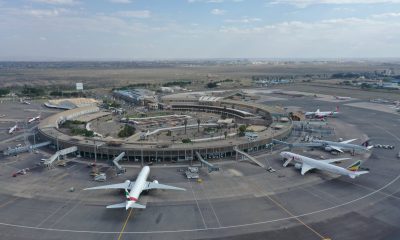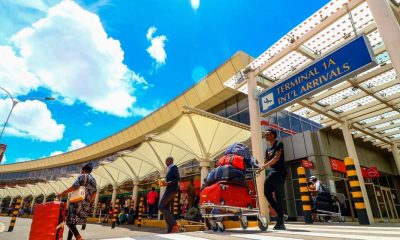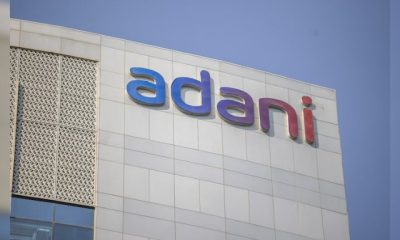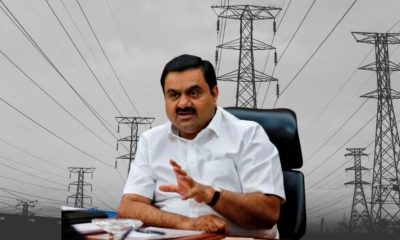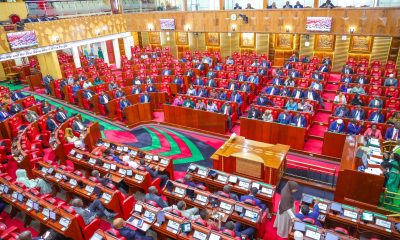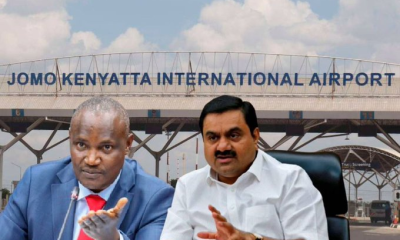Investigations
MPs Put KAA MD On The Spot Over Sh4.3B Payment To Firm Linked To Wanjigi For Doing Nothing
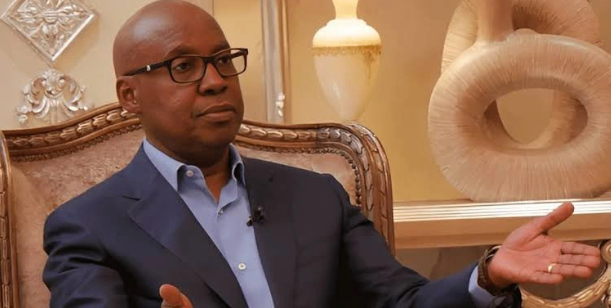
Investigation Reveals Decade-Long Saga of Mismanagement at JKIA’s Greenfield Terminal Project
The Kenya Airports Authority (KAA) found itself under intense parliamentary scrutiny this week as lawmakers demanded answers over a controversial Sh4.3 billion payment to a Chinese contractor linked to prominent businessman Jimmy Wanjigi—despite no visible work being done on the ambitious Greenfield Terminal project at Jomo Kenyatta International Airport (JKIA).
In a heated session before the National Assembly’s Public Investments Committee (PIC), chaired by Pokot South MP David Pkosing, KAA’s Acting Managing Director Nicholas Bodo struggled to justify the massive expenditure on a project that has remained stalled for over a decade, raising serious questions about accountability and stewardship of public funds.
The Sh75 Million Groundbreaking Ceremony Scandal
Among the most contentious revelations was the discovery that KAA spent Sh75 million on a groundbreaking ceremony in May 2014, presided over by then-President Uhuru Kenyatta. This ceremonial expense was classified as a “contract variation”—a designation that has left MPs incredulous.
“How can there be such a huge variation in the cost of a project that hasn’t even started?” demanded Kaloleni MP Katana Paul Kahindi, calling for those responsible to be held accountable to deter future misuse of public funds.
Bodo defended the expenditure, claiming the presidential event required logistical preparations not initially budgeted for and were covered using contingency funds within the contract. However, the explanation failed to convince committee members, with Chairman Pkosing questioning why such a significant amount was spent on an event for a project that remains incomplete more than a decade later.
The Wanjigi Connection Unraveled
The controversy deepens with the emergence of businessman Jimmy Wanjigi’s alleged connection to the project through the contracting consortium ACEG-CATIC JV—a joint venture between China’s Anhui Construction Engineering Group Co Ltd (ACEG) and China Aero-Technology International Engineering Corporation (CATIC).
Parliamentary investigations conducted between 2021 and 2022 revealed that Wanjigi was listed as one of the directors of the joint venture, alongside Chinese nationals. The revelation came to light when MPs, led by Ruaraka’s Tom Kajwang, Embakasi East’s Babu Owino, and Mvita’s Abdulswamad Nassir, demanded that Transport Ministry officials be put under oath to confirm they were conducting business with Wanjigi.
“It is important that the Ministry officials and the Kenya Airports Authority Board is put under oath so they can confirm that they were in business with Wanjigi,” Kajwang stated during parliamentary proceedings.
MP Babu Owino went further, alleging that “Wanjigi is indeed using taxpayers’ money to contest, he should be made to refund our money,” referring to Wanjigi’s presidential ambitions at the time.
A Project Doomed from the Start
The Greenfield Terminal project, launched in 2013 as part of Kenya’s Vision 2030 flagship initiatives, was intended to transform JKIA into a regional aviation hub capable of handling 20 million passengers annually. The original contract was valued at Sh64 billion, but investigations later revealed the cost had been inflated by up to Sh9 billion.
The project was marred by illegalities from its inception. KAA entered into the agreement with the Chinese consortium on November 13, 2013, and granted site possession on December 6, 2013, before the contractor had secured project financing—a clear breach of Clause 5 of the contract agreement.
“The management of the KAA was in breach of Clause 5 of the contract agreement that made it a condition precedent for the contractor to secure a financier before signing the deal,” states a parliamentary report. “It was not clear why KAA was in a hurry to sign a contract whose condition precedent of securing a financier had not been met.”
The contractors had identified two potential financiers—China Development Bank Corporation and China Exim Bank—but no valid financing contract had been crystallized by the time of signing.
The Sh4.3 Billion Question
According to the Auditor General’s report covering KAA’s accounts from 2018/2019 to 2021/2022, irregular payments totaling Sh4.5 billion were flagged. Of this amount, Sh4.31 billion was advanced to ACEG-CATIC JV as “advance payments” despite no evidence of evaluated work being completed.
The Public Investments Committee found no basis for these payments. “Throughout our investigations, we did not receive any submission on why the amount was paid to the contractor. It should be recovered,” said committee chairman Abdulswamad Nassir in 2022.
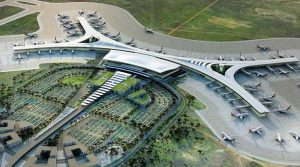
The design for the stalled Jomo Kenyatta International Airport Greenfield Terminal creates the largest single-terminal aviation hub in East Africa.
KAA management claimed the money was paid as advance payment as provided for in the contract agreement and was to be recovered from subsequent progress payments. However, since the contract was terminated without any work being done, it remained unclear why KAA had not instituted measures to have the advanced monies refunded.
Additional Financial Irregularities
Beyond the main contractor payment, the financial web of irregularities extends further:
- Sh216 million was paid to consulting firm Louis Berger Group and Runji Partners (LBG) for supervision services, with no evidence of work completed by June 30, 2019
- Sh7.4 million was disbursed to PricewaterhouseCoopers (PwC) after its contract for technical advisory services was terminated under unclear circumstances
- The supervision contract with Louis Berger Group was valued at US$8.83 million
Legal Battle and Mounting Costs
The project’s cancellation in March 2016 triggered a complex legal battle. ACEG-CATIC JV is now demanding Sh17.6 billion from KAA for breach of contract, broken down as follows:
- Sh2 billion for preparation of bill of quantities
- Sh2.4 billion in additional costs
- Sh708.2 million in Value Added Tax charged by Kenya Revenue Authority
- Sh5.6 billion in additional claims including contract balance, VAT, interest, and penalties
The case remains pending at the International Court of Arbitration, and if the contractor prevails, Kenyan taxpayers could face a total liability of up to Sh20 billion.
The Mediation Settlement
Recent revelations show that a mediation agreement was reached between the parties, with KAA agreeing to pay a gross compensation amount of Sh4.79 billion to settle the contractor’s claims. After deducting the advance payment already received by the contractor (Sh4.18 billion), a final settlement of Sh604 million was paid to pave the way for KAA to enter into new contracts.
This settlement appears to have been orchestrated to clear the path for the controversial Adani Group’s JKIA concession deal, which has since been cancelled following public outcry and concerns over the Indian conglomerate’s financial stability.
Systemic Failures in Oversight
The Greenfield Terminal saga exposes systematic failures in Kenya’s public procurement landscape. The Ethics and Anti-Corruption Commission (EACC) investigation in 2015 revealed a Sh9 billion variance in the project’s contract, leading to the suspension of four senior KAA managers on corruption allegations.
Committee members expressed frustration at the lack of accountability for the financial discrepancies. Most of the officials involved in the project’s initial stages have since left KAA, making it difficult to pursue individual accountability.
“Without urgent action, such issues could recur,” warned Nyeri Town MP Duncan Mathenge, while Laikipia East MP Mwangi Kiunjuri suggested that many of the audit queries may have originated from KAA’s board oversight failures.
The Wanjigi Business Empire
The Greenfield Terminal controversy is part of a broader pattern involving Jimmi Wanjigi’s business empire, the Kwacha Group of Companies. The conglomerate, founded in the late 1990s, built its success on lucrative government contracts and political connections spanning multiple administrations from Daniel arap Moi to Uhuru Kenyatta.
Wanjigi’s business dealings have been linked to several major scandals, including the Anglo Leasing affair and the Standard Gauge Railway project. His political connections have enabled his companies to secure high-value government contracts, raising questions about the intersection of business and politics in Kenya’s procurement processes.
Current Status and Future Implications
The Greenfield Terminal project remains a symbol of Kenya’s infrastructure challenges, with JKIA struggling to handle growing passenger volumes while billions of shillings lie waste in abandoned projects. The government is currently targeting 25 million passengers annually through JKIA, making the resolution of these issues critical for the airport’s expansion plans.
The parliamentary committee has recommended that KAA immediately commence recovery proceedings for the advanced monies paid to both the contractor and consultants. However, the complex web of legal battles and mediation agreements makes recovery uncertain.
Conclusion
The Sh4.3 billion payment to a Wanjigi-linked firm for zero work represents more than just financial mismanagement—it symbolizes the systemic corruption and lack of accountability that has plagued Kenya’s public procurement system. As lawmakers continue to demand answers, the case serves as a stark reminder of the urgent need for reform in how the country manages taxpayer funds and implements major infrastructure projects.
The Greenfield Terminal saga underscores the critical importance of parliamentary oversight in protecting public resources and ensuring that those entrusted with taxpayer money are held accountable for their actions. Whether justice will be served in this case remains to be seen, but the public outcry and parliamentary pressure suggest that the days of unchecked spending and questionable deals may be numbered.
Kenya Insights allows guest blogging, if you want to be published on Kenya’s most authoritative and accurate blog, have an expose, news TIPS, story angles, human interest stories, drop us an email on [email protected] or via Telegram
-

 Grapevine2 weeks ago
Grapevine2 weeks agoAlleged Male Lover Claims His Life Is in Danger, Leaks Screenshots and Private Videos Linking SportPesa CEO Ronald Karauri
-

 Grapevine1 week ago
Grapevine1 week agoRussian Man’s Secret Sex Recordings Ignite Fury as Questions Mount Over Consent and Easy Pick-Ups in Nairobi
-

 News5 days ago
News5 days agoTHE FIRM IN THE DOCK: How Kaplan and Stratton Became the Most Scrutinised Law Firm in Kenya
-

 Investigations7 days ago
Investigations7 days agoMulti-Million Dollar Fraud: Three Kenyans Face US Extradition in Massive Cybercrime Conspiracy
-

 Economy6 days ago
Economy6 days agoIran Demands Arrest, Prosecution Of Kenya’s Cup of Joe Director Director Over Sh2.6 Billion Tea Fraud
-

 Business6 days ago
Business6 days agoA Farm in Kenya’s Rift Valley Ignites a National Reckoning With Israeli Investment
-

 Africa1 week ago
Africa1 week agoFBI Investigates Congresswoman Ilhan Omar’s Husband’s Sh3.8 Billion Businesses in Kenya, Somalia and Dubai
-

 Business2 weeks ago
Business2 weeks agoM-Gas Pursues Carbon Credit Billions as Koko Networks Wreckage Exposes Market’s Dark Underbelly

